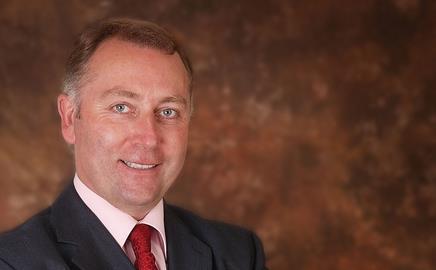Company focus — Having survived Wembley, former Multiplex boss Martin Tidd is taking on the Shard
Now that the media circus has packed up its tents and left its camping ground around Wembley stadium, most of the characters who performed for it have slipped into the background to rebuild their reputations and balance sheets, and restore their nerves.
Not Martin Tidd, though. The former managing director of Multiplex’s UK construction arm is to take another turn on the high wire at Sellar Property’s Shard tower in London Bridge, a project that is likely to exert almost as much fascination as the national stadium.
Tidd is managing director of Primus Build, the firm he founded four months ago, and the project management of the Shard is to be its first big project. The deal forms part of a continuing relationship with Irvine Sellar, the chairman and chief executive of Sellar Property, which means Primus already has plenty of work in the pipeline.
Grateful as he is for Sellar’s confidence, Tidd does not want to become his in-house builder: at Multiplex he avoided this fate by leaving its contracting division when it decided to limit its construction work to projects it was itself developing.
Within three years, he wants Primus to have an £85m turnover, and to do this he thinks the company has to win work with clients from across London commercial, residential and retail sectors.
“We don’t want to be massive, but we want to be seen as a high-performing organisation providing services to a limited number of clients,” he says. “Over the first five years, it’s about building a sustainable platform.”
The Sellar deal
Tidd and Sellar met when Multiplex was competing for the construction management role on the Shard. It fell to Tidd to tell the developer that Multiplex had decided to go in-house, and would therefore be dropping its bid. Sellar encouraged Tidd to set up his own company and offered to connect him to his firm’s pipeline of work.
Tidd teamed up with former Multiplex collegue Simon Cook, who had been on secondment to Westfield, and approached trade contractors and potential clients to see how they would feel about the venture. “We got a lot of support,” says Tidd. “There were clear opportunities in the market for a new business.”
The Shard may be another iconic building, but we haven’t taken it on as a lump sum …
Martin tidd
Primus Build now employs 17 staff from its London Bridge base. It may be that more of his Multiplex colleagues will join him, but not until September, when his non-poaching agreement runs out. “I do anticipate some people teaming up with us again,” he says.
Future plans
In addition to the Shard, the company is in negotiation over three other Sellar schemes, which Tidd declines to name, saying only that one is “very significant”. The company has also won a construction management contract on a 120-bed Acor hotel and office scheme for Sellar in Portsmouth.
Initially, Tidd intends to anchor Primus’ workload in the private sector in London. As well as the Shard, the company has been invited to bid on a £65m tower for St George in Vauxhall, and Tidd wants to capitalise on the tall towers expertise within his staff.
Eventually, the company could expand into the public sector and the rail market. Tidd says it is happy to consider lump-sum schemes, although the market trend is currently towards construction management.
“I’m used to running a large business, and my aspiration is to build a business that is sustainable in terms of resource,” says Tidd. “I do see opportunities for subsidiaries in terms of affordable homes, project management and facilities management. But we’ve got to walk before we run.”
Tidd acknowledges that Wembley’s fate may play a part in how Primus is perceived, but says the project has added to his experience. “There are lessons to be learned from Wembley, and it would be a shame if they weren’t,” he says.
And it seems that one important financial lesson is being applied to the Shard. “It may be another iconic building, but it’s pretty exciting. The good news is that it’s fee-earning – we haven’t taken it on as a lump sum.”

























No comments yet